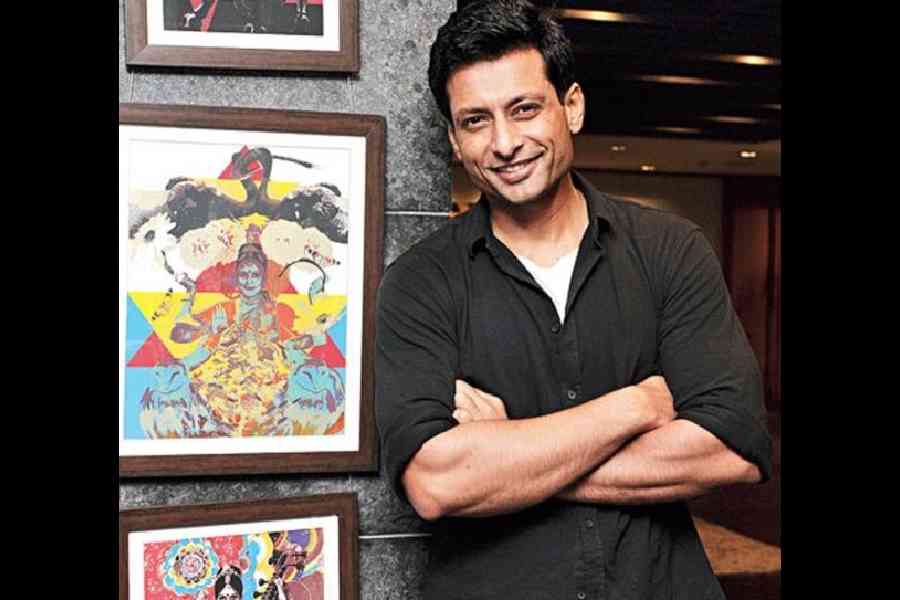Indraneil Sengupta has several books to keep him company through the day. If there is one at his bedside, another he carries in his bag to work, and while working out he has an audiobook playing. “I prefer to consume different subjects,” he tells t2 over phone. So he is reading Kiran Desai’s Inheritance of Loss between shots, having just finished Pedagogy of the Oppressed by Brazilian educator Paulo Freire, which he had picked up after completing Barack Obama’s autobiography, A Promised Land. And on his audio app, he is listening to a self-help book. “That gives me variety. I like reading fiction and hearing non-fiction.”
There is variety in his choice of roles too. After probing Nayan Rahasya as Feluda, he is delving in conjugal complications in the dramatic backdrop of the pandemic in the film Chalti Rahe Zindagi, co-starring Barkha Bisht, his ex-wife, and Seema Biswas, which is currently streaming on Zee5.
Do you think we have started to forget the pandemic period?
I do not think so. It is one of the biggest incidents in our generation. Like people mention the plague, people will remember the time when the world came to a standstill and there was hopelessness all around. We have overcome it with flying colours and resumed life. When someone near and dear dies, you grieve but then you move on. Yet the pain stays. So the episode will always be remembered when memories come back.
It’s said that art imitates life. So is this film a kind of documentation of life during Covid?
This is not just a work based on the lockdown. This is a work done during the lockdown. So it is not as if we picked a story and put it in a lockdown background. We had shot during Covid. The scenes in our story were shot in our house. Only the director and the DoP would come and we would shoot in a small place. Luckily, the director, Aarti Bagdi, stayed in the next building in our own complex on Meera Road and our DoP (Dharamendra Bhurji, director of photography) was her neighbour.
That makes the production process quite interesting.
Yes. There were no makeup artist, hair stylist, spot boy, light man... Our story was the first to be shot. In fact, it was then planned as a short film. The story was conceived keeping the availability of the cast (next door) in mind. Then they decided to add more stories and turn this into a feature film by adding a common thread. In terms of visual quality, you can make out that our segment is very basic; with the others, things improved slightly.
Tell us about the plot.
Three separate families have been shown facing three different situations. A breadwallah comes to every house to provide supplies. The story is woven together through this breadwallah, who was incorporated later.
Would you say that the lockdown affected relationships in every family?
No. If someone wins a lottery and that changes the dynamics in the family, would you blame the lottery? Things (in a family) could have changed if someone died or if there was an accident also. Lockdown was a circumstance. And the human dynamics got affected because of that. I don’t think the lockdown specifically affected relationships. Relationships change as people live their lives.
In the trailer, the gatekeeper tells you that the building is sealed and you can’t go in and you protest that your wife is alone upstairs. Who plays your wife in the film?
She is not shown. I am then invited into a neighbour’s house in the next building. The neighbour’s husband is also not home and she is staying alone with a child. Barkha plays that character, whom I don’t know. We are not husband and wife in the film. Before Chalti Rahe Zindagi, we had shot at home for a Bengali web series. So we had that practice. The two of us used to stay in the same flat at that point.
After two back-to-back Feluda films, Hatyapuri and Nayan Rahasya, are you feeling comfortable in Feluda’s shoes?
Yes, the audience has given me that confidence. It felt that way after Hatyapuri itself when I realised during hall visits that people had accepted me. This time, after Nayan Rahasya, that uncertainty (about acceptance) was not there. We simply wanted to improve our work. If I do 10 Feluda films, of course I will be better in the second than in the first, and even better in the third than in the second. That is natural.
You shot recently with Kajol.
It’s a film called Maa under Devgn Productions and will be directed by Vishal Furia. The film centres round Kajol. That’s all that can be said now.











